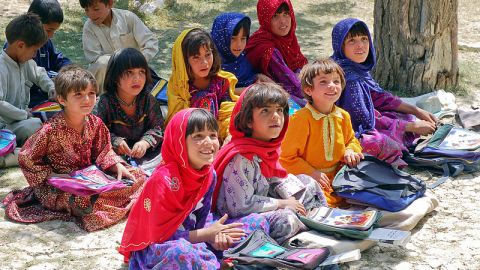How Do You Start an Islamic Reformation?

Since my post on the U.S. embassy riots had so many good comments, I thought I’d write a sequel and continue the discussion. I’d like to offer some further thoughts about Ayaan Hirsi Ali’s article in Newsweek, on the mindset of “Muslim rage” and what this violence means for the future of Islamic and Western civilization. In general, I agreed with the article (its awful, lazily prejudiced title aside [would anyone ever write about “Christian rage”?]), although there are some points where I think there’s more nuance to be acknowledged.
Several people, like Crommunist on Freethought Blogs as well as comments here on Daylight Atheism, argued that the silly video which ostensibly inspired the riots was just a pretext. The real roots of anger in the Islamic world, they say, come from feelings of disenfranchisement and humiliation engendered by decades of Western interference – whether it be propping up dictators, waging preemptive wars, killing innocent people with bombings and drone strikes, and so on – and riots like this are just an outlet for that pent-up anger, which coalesces around convenient targets.
I think there’s probably some truth to this. But I disagree with this theory in one important respect: regardless of what actually inflamed the riots, what the protesters themselves are demanding has nothing to do with that. Instead, the most common demand from all quarters, such as from Turkey’s prime minister and even American Muslim commentators, is to pass new laws banning speech that offends religious feelings. Hirsi Ali is correct when she says that this is a mainstream, not a fringe, position in the Islamic world. But this would do precisely nothing to address those underlying grievances.
You could draw an analogy to American conservative politics. There’s much in our society to be legitimately worried about – skyrocketing levels of inequality, mushrooming government secrecy and fading accountability, the erosion of privacy rights, and more. But the leaders of the Republican party have successfully distracted their base from these issues of systemic injustice by conjuring up imaginary enemies at the gates – immigrants, gay people, women who use contraception, poor people who need health care – to keep them perpetually angry and embroiled in phony culture-war controversies. What’s going on in the Muslim world is a more extreme version of that. You can feel compassion for the people who’ve been so badly misled; but that doesn’t change the fact that their misguided demands are wrong and must be opposed.
But I think America has a more plausible way to escape this ignorance trap. We have a well-entrenched legal system to protect minorities’ constitutional rights, a vigorous tradition of free speech and debate, and strong civil institutions like public schools to help educate people out of their delusions. But in brand-new democracies like Egypt, the institutions of civil society are weak, and more vulnerable to strong-arming by angry mobs or corrupt officials. I’m not so sure if they can pull themselves out as easily.
In this respect, Hirsi Ali is more optimistic than me. She says that democracy, in the long run, will be the undoing of Islamists because it will force them to deliver on their grandiose promises, and suffer popular scorn when they inevitably can’t. That was what I thought originally, but I have to admit that events like these have put me in some doubt. Again, as the U.S. experience shows, would-be theocrats are endlessly creative when it comes to rationalizing their failures.
On the other hand, perhaps I’m too pessimistic. It seems that Roman Catholics were once viewed in the same light as Muslims – as a sinister, invasive subculture given to authoritarianism and unwilling to assimilate – and in retrospect, this clearly turned out to be nothing but prejudice. (I should draw a distinction between Catholic laypeople, who’ve assimilated to the point where it no longer makes sense to speak of a distinct “Catholic vote”, and the Catholic hierarchy, which has grown increasingly authoritarian and regressive.)
I see no reason to believe that a similar reformation can’t eventually happen with Islam, but I don’t know whether it will happen if we continue along the path we’re on now. Your thoughts?
Image: Children attending school in Afghanistan, via Wikimedia Commons
Daylight Atheism: The Book is now available! Click here for reviews and ordering information.





